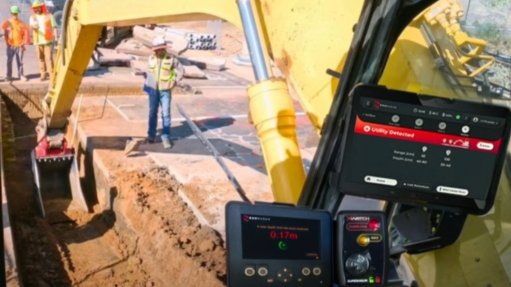Best fire safety practice for BESS installations
This article has been supplied.
Battery Energy Storage Systems (BESS) have become increasingly important for supporting renewable energy integration and grid stability. However, they pose unique fire safety challenges due to the energy density and chemical nature of batteries, particularly lithium-ion polymer (Li-ion) batteries with cobalt or manganese chemistries.
The technology functions by storing electrical energy in batteries for later use. It is a crucial component in modern power systems, allowing for the efficient management of energy supply and demand. Applications range from grid stabilisation to renewable energy integration and backup power. The heart of the system are the batteries where the energy is stored.
The main fire risk associated with Li-ion batteries is thermal runaway, a condition where the battery overheats and can ignite or explode. This can result from overcharging, short circuits, mechanical damage, or exposure to high temperatures. During a thermal runaway event, batteries can release flammable gases like hydrogen and toxic substances, posing additional risks of fire and toxicity.
Lithium batteries with Nickel Manganese Cobalt (NMC) chemistries differ from Li-ion phosphate LiFePO4 (LFP) batteries as the NMC batteries release oxygen during thermal runaway or when on fire, which accelerates and intensifies the combustion process. LFP batteries do burn, but the energy released is less than one fifth that of NMC batteries.
Batteries store a large quantity of energy in a small volume. If they fail, they can release this energy rapidly, leading to intense fires that are difficult to control. Even after being extinguished, NMC batteries can reignite due to residual heat or internal chemical reactions. “It is for this reason that ongoing monitoring is critical,” comments Michael van Niekerk, CEO of ASP Fire. Some battery chemistries can react with water, complicating firefighting efforts.
The most important component of a BESS system is the Battery Management System (BMS) as it will prevent thermal runaway and any fire that develops as a result by shutting the system down long before dangerous conditions are reached.
In South Africa, several standards and regulations ensure the safe deployment of BESS solutions. SANS 10139 covers fire detection and alarm systems. Proper detection systems are vital in identifying potential thermal runaway events. SANS 10400 provides guidelines for building safety, including fire protection measures, which can be applied to the installation of BESS within buildings.
In addition, the National Building Regulations Act (NBRA) require that any energy storage system installed within a building meets specific safety requirements, including fire resistance, ventilation and safe egress routes. In terms of the Occupational Health and Safety Act (OHSA), employers must ensure a safe working environment, including the installation and operation of BESS. Compliance with fire safety standards is part of this requirement.
“It is recommended to conduct a thorough risk assessment considering the location, type of batteries and potential fire hazards. Ensure proper spacing, ventilation and fire barriers to mitigate fire risks,” explains van Niekerk.
Fire detection systems like smoke and gas detectors must be installed to detect early signs of battery failure. Lithium battery fires are almost impossible to extinguish and will continue to burn until the fuel is exhausted.
Proper fire containment of a BESS installation is therefore vital, especially if the system does not include a BMS. It is also important to develop a comprehensive emergency response plan, including procedures for dealing with battery fires, evacuation plans and coordination with local fire services.
A qualified and experienced fire engineering firm like ASP Fire offers a range of services to assist clients to comply with fire safety regulations and optimise the efficiency of their BESS installations. These include detailed fire risk assessments tailored to BESS, identifying potential hazards and recommending mitigation strategies in line with South African standards and best practices.
ASP Fire can design and implement fire detection and protection systems suited to BESS, ensuring compliance with SANS and NBR standards. This includes selecting appropriate fire protection system and ensuring proper installation and maintenance, concludes van Niekerk.
Article Enquiry
Email Article
Save Article
Feedback
To advertise email advertising@creamermedia.co.za or click here
Announcements
What's On
Subscribe to improve your user experience...
Option 1 (equivalent of R125 a month):
Receive a weekly copy of Creamer Media's Engineering News & Mining Weekly magazine
(print copy for those in South Africa and e-magazine for those outside of South Africa)
Receive daily email newsletters
Access to full search results
Access archive of magazine back copies
Access to Projects in Progress
Access to ONE Research Report of your choice in PDF format
Option 2 (equivalent of R375 a month):
All benefits from Option 1
PLUS
Access to Creamer Media's Research Channel Africa for ALL Research Reports, in PDF format, on various industrial and mining sectors
including Electricity; Water; Energy Transition; Hydrogen; Roads, Rail and Ports; Coal; Gold; Platinum; Battery Metals; etc.
Already a subscriber?
Forgotten your password?
Receive weekly copy of Creamer Media's Engineering News & Mining Weekly magazine (print copy for those in South Africa and e-magazine for those outside of South Africa)
➕
Recieve daily email newsletters
➕
Access to full search results
➕
Access archive of magazine back copies
➕
Access to Projects in Progress
➕
Access to ONE Research Report of your choice in PDF format
RESEARCH CHANNEL AFRICA
R4500 (equivalent of R375 a month)
SUBSCRIBEAll benefits from Option 1
➕
Access to Creamer Media's Research Channel Africa for ALL Research Reports on various industrial and mining sectors, in PDF format, including on:
Electricity
➕
Water
➕
Energy Transition
➕
Hydrogen
➕
Roads, Rail and Ports
➕
Coal
➕
Gold
➕
Platinum
➕
Battery Metals
➕
etc.
Receive all benefits from Option 1 or Option 2 delivered to numerous people at your company
➕
Multiple User names and Passwords for simultaneous log-ins
➕
Intranet integration access to all in your organisation





















